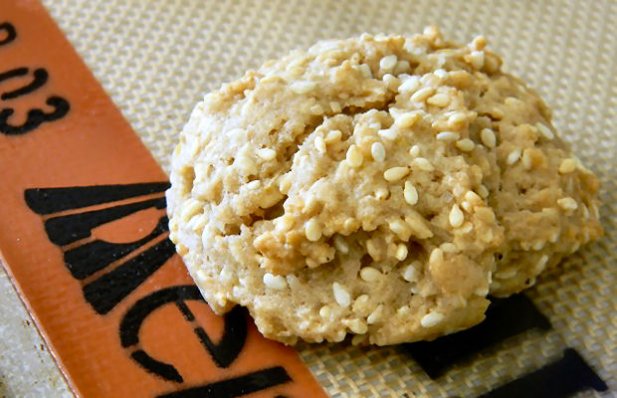By Eddy − On Friday, November 20, 2015, 8 years ago in
Cookie Recipes
5 out of 5 with 2 ratings
comments: 0 - views: 11373

| Preparation time | 1 h 15 min |
| Cooking Time | 15 min |
| Ready In | 1 h 30 min |
| Level of Difficulty | Easy |
| Servings | 8 |
Ingredients
1⁄2 cup of Port wine1⁄3 cup of rich olive oil1⁄2 cup of sugar2 teaspoons of lemon zest1⁄2 teaspoon of anise or 1⁄2 teaspoon of fennel seed1 and 1⁄4 cups of flour1⁄2 teaspoon of baking soda1⁄4 teaspoon of salt2⁄3 cup of sesame seeds
Get Portuguese ingredients 
Instructions
- In a bowl, combine Port wine, oil, sugar, lemon zest and anise, mixing well.
- Stir in the flour, baking soda, salt and sesame seeds.
- Cover and chill for at least 1 hour.
- Preheat the oven to 180°C or 350°F and line two sheets with parchment.
- Scoop tablespoons of dough onto the sheets and bake the cookies (while the dough is still cold) for 13-14 minutes, rotating the sheets halfway through baking.
Recipe & Photo Credit: YummySmellsca, Food.com *
There are no comments for this recipe.
